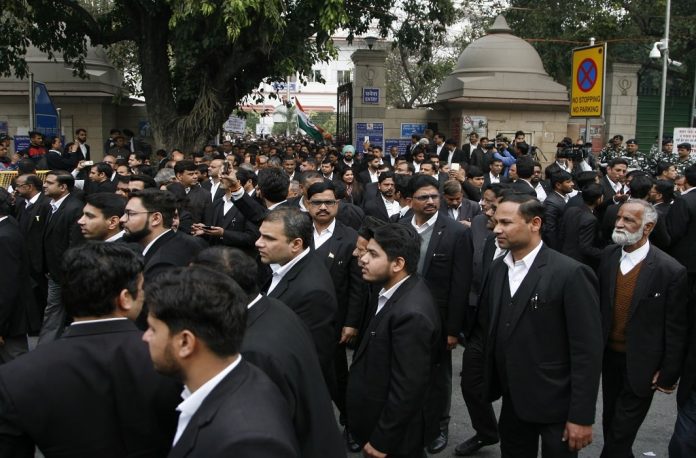The lockdown has left many junior lawyers in the lurch and they’re unable to fend for their families. It is time bar associations and senior lawyers helped them tide over this crisis
By Kush Sharma
The nationwide lockdown to contain Covid-19 has brought to the fore the great disparities in various sections of society, including in the legal field. In this arena, there has been a paradigm shift in the working of courts. While there is a small fraction of rich advocates with envious lifestyles, a majority of lawyers, especially in lower courts, function on a case-to-case basis. So when courts don’t function, their economic condition becomes precarious. The noble profession of advocacy is balanced only due to the service provided by this majority section.
Thanks to the lockdown, many lawyers have been deprived of their work. Along with the need for social distancing, all courts are attending only to urgent matters through video-conferencing. What counts as an urgent matter has been left to the discretion of court officials. The procedure is that a lawyer has to file a petition online with the court officials who will then look into the urgency of a matter and decide if it should be listed or not. Only a limited number of cases are, therefore, being listed in courts and are approximately less than 10 percent of normal listings.
Additionally, clients are also not able to reach the courts to meet their lawyers. This has almost halted the legal profession. Struggling lawyers have been hit hard. In legal circles, it is often said that a vast majority of lawyers are almost like daily wage workers, particularly junior ones. They face economic distress even when courts shut for the annual two months’ vacation. In many of their households, the preparation for such vacations starts at least a month earlier when expenses are cut to brace for the impact.
What has exacerbated the condition of struggling lawyers is that the limited quantity of litigation now goes only to selected senior advocates. Every first generation lawyer has a story of struggle. This, coupled with no social security, leads to a precarious financial situation. It is time the legal fraternity, especially affluent and well-settled members of it, take a call on how to support their struggling brethren. While some bar associations have responded with a proposal of financial aid to needy lawyers, many others are found wanting.
The Bar Council of Himachal Pradesh has devised a strategy to provide a lump sum amount of Rs 5,000 to such lawyers after scrutiny of their applications for financial help. But isn’t this amount too little for survival? Many advocates in the state live in rented accommodation which is close to courts where the rents are high. The lockdown has put paid to their daily earnings and survival itself is now in question.
Many are now evaluating whether the force majeure clause can be invoked in rent obligations. Of course, this has to be accompanied by a supporting clause or a specific rent waiver clause. In case the agreement does provide for stoppage of rent or suspension of all obligations during a force majeure period, then the lessee should immediately exercise this right by issuing a letter to the lessor and cease paying rent.
Non-payment of rent may lead to termination of rent agreements. Under such circumstances, the government should have a policy to protect tenants of the legal profession by introducing a relaxed payment, waiver or suspension of rentals during the lockdown period. Moreover, even after the lifting of the lockdown, normal work will take months to resume in courts. The Bar Council of Delhi has written a letter to the High Court requesting that the rent for premises which was used for professional purposes by advocates be waived.
This is an apt time for the centre and state governments to help needy advocates survive this crisis by formulating beneficial policies or by paying or waiving their rentals. The government has already taken some policy decisions to benefit labourers, migrants, MSMEs, students, etc. A similar policy to support lawyers is the need of the hour.
—The writer is an advocate and was former Deputy Advocate General at the Himachal Pradesh High Court
Lead picture; Anil Shakya


